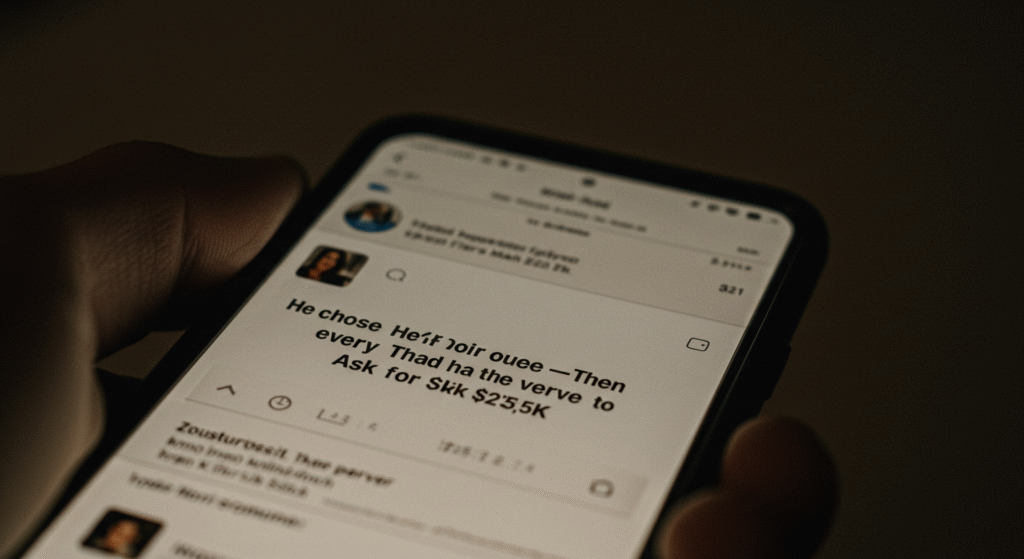For most of my childhood, I was the shadow in the family portrait. My stepdad had a way of making me feel like I was always just out of frame—present, but never acknowledged. Vacations came and went without my name on the itinerary. Birthday celebrations felt like obligations. His daughter, on the other hand, was the sun around which everything revolved. She got the hugs, the praise, the attention. I got silence.
I learned early how to shrink myself. To not ask for too much. To be grateful for crumbs. I told myself it was normal. That maybe I hadn’t earned his love. That maybe being invisible was safer than being rejected outright.

But invisibility leaves scars. It teaches you to question your worth. It makes you believe that love is conditional, transactional, and always just out of reach.
Years passed. I built a life on my own terms—slowly, painfully, but with purpose. I worked hard, saved harder, and carved out a space where I mattered. I didn’t do it for revenge. I did it to survive.
Then came the message.
He reached out, not to reconnect, not to apologize, but to ask for $25,000. For his daughter’s house. The same daughter who had always been the chosen one. The same daughter whose milestones were celebrated while mine were ignored. He spoke as if it were a given. As if I owed him. As if my success was somehow his to claim.
I stared at the message for a long time. Not because I was tempted to say yes, but because I was stunned by the audacity. After years of exclusion, he saw me—not as a person, but as a wallet. My invisibility had ended the moment he needed something.

I didn’t respond right away. I let the silence speak for me. I thought about every missed vacation, every time I sat alone while they laughed in another room. I thought about the birthdays I spent pretending not to care. I thought about the years I spent trying to earn a place I was never going to be given.
And then I wrote back.
I told him that I remembered everything. That I had spent years feeling like a ghost in my own home. That his favoritism had taught me how to disappear. That I had rebuilt myself from the ground up—not with his help, but in spite of his absence.
I told him no.
Not out of bitterness, but out of clarity. I didn’t owe him anything. Not money. Not forgiveness. Not explanation.
He made me feel invisible. But I’m not anymore.
I’m here. I’m whole. And I choose who gets to see me now.


